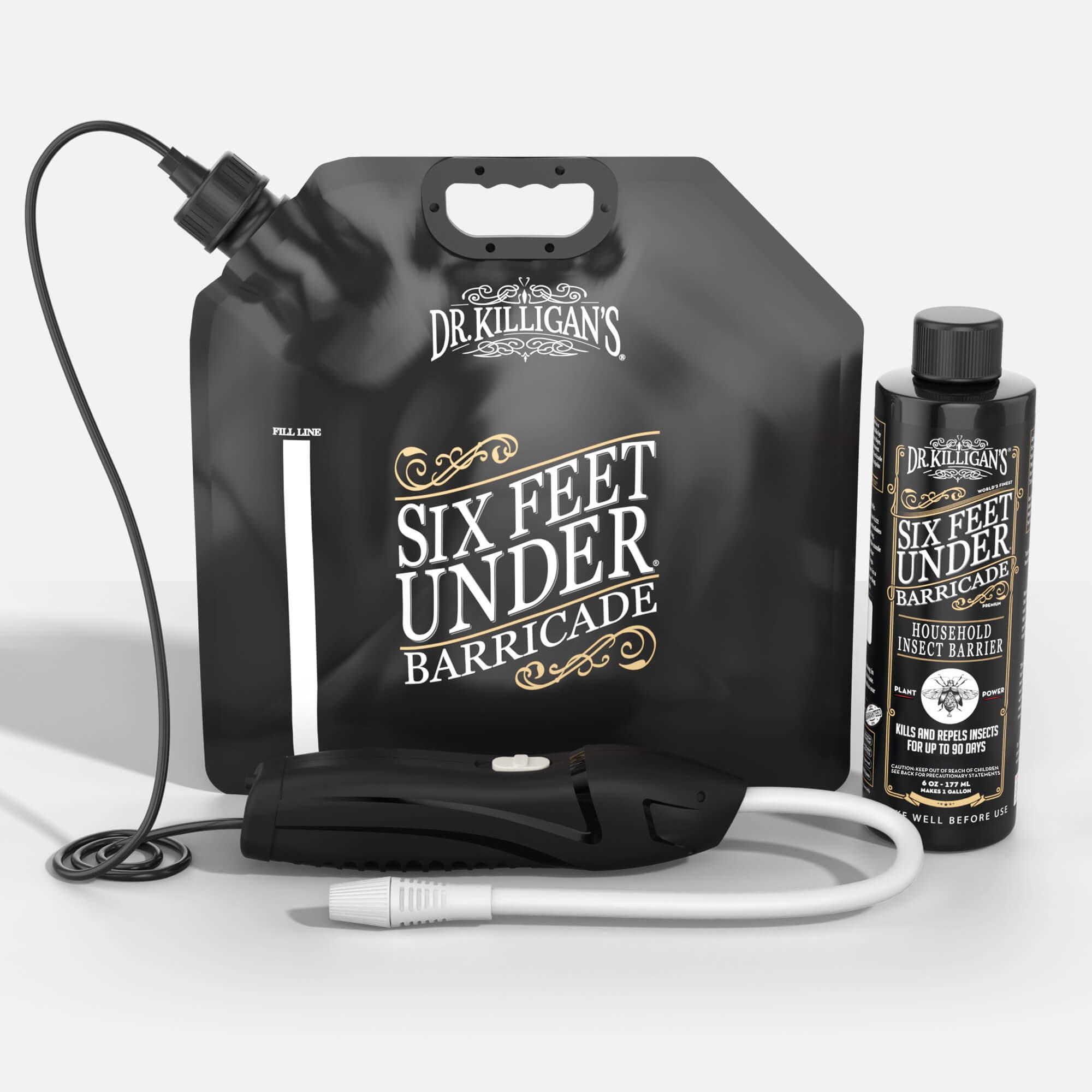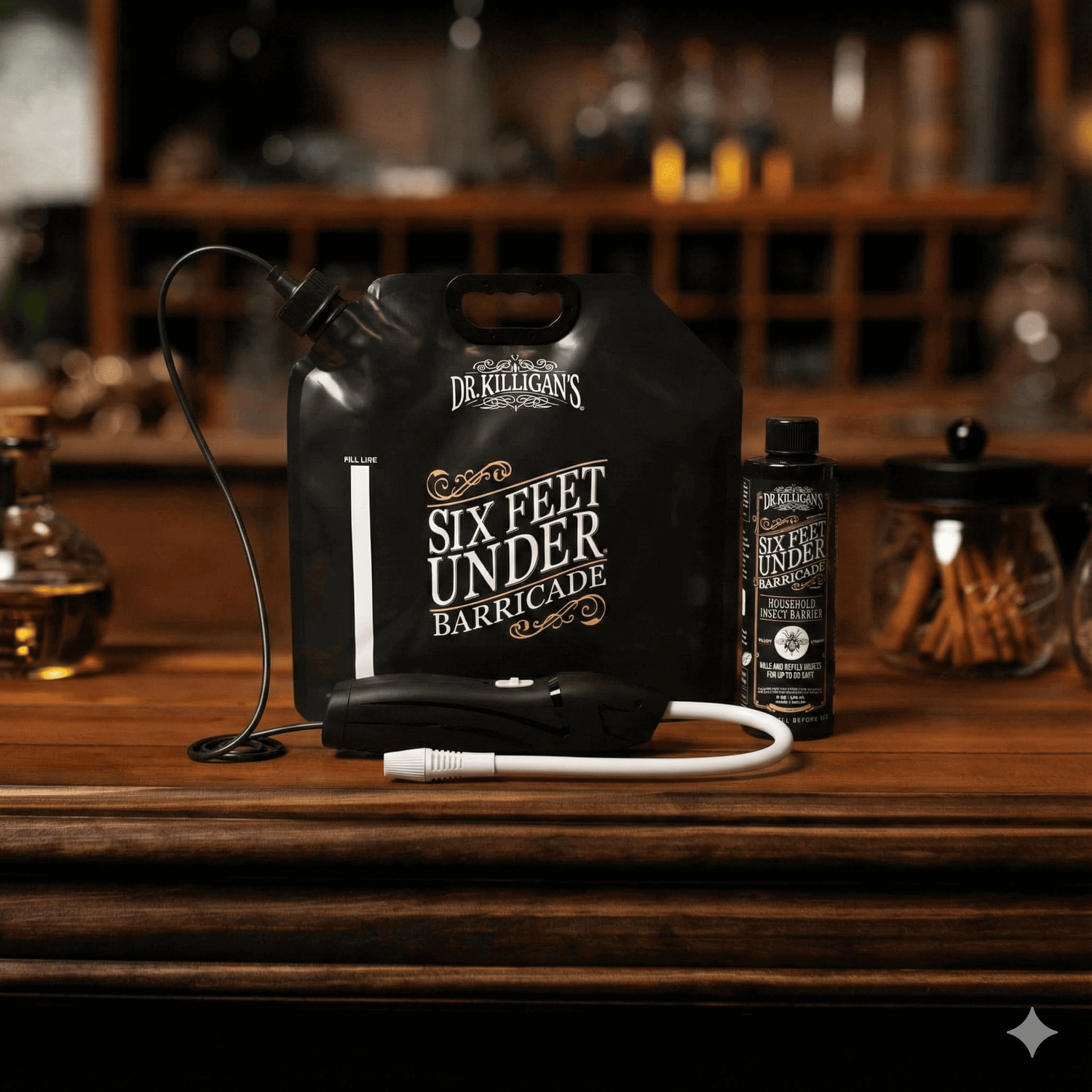Updated on May 20th, 2025
Today, we're diving deep into a question I’m frequently asked: 'Does cedar repel bugs?' The answer is yes—cedar effectively repels various pests, including mosquitoes, spiders, carpet beetles, cockroaches, fire ants, pantry moths, clothing moths and other fabric-damaging insects. As someone who's constantly on the lookout for natural ways to bolster plant and home health, I find cedar’s properties truly fascinating.
>>> Eliminate bugs with the world's most effective eco-insecticide
Together, let’s explore the compelling world of cedar and its ability to keep pesky invaders at bay.
Does cedar repel mosquitoes?

Yes—cedarwood oil repels mosquitoes by interfering with their ability to detect hosts.
Scientific studies, including research published in the Malaria Journal, highlight cedarwood oil’s effectiveness in repelling malaria-carrying Anopheles mosquitoes. These pests rely heavily on smell to locate humans, but aromatic compounds like cedrol and cedrene disrupt their sensory perception, disorienting them and driving them away from treated areas.
Additionally, the NTP Technical Report (National Toxicology Program) confirms cedarwood oil’s efficacy with a knock-down range of 20% to 80% when applied directly to mosquitoes, cockroaches and houseflies.
Does cedar repel spiders?
Addressing another prevalent domestic unease: spiders. While they play a vital role in controlling other pests, not everyone is thrilled to find them inside their homes.
Cedarwood naturally deters these eight-legged creatures, making spaces like dark closets less inviting. Cedar Planks serve as an effective barrier in these areas.
Note: It's crucial to recognize that our intent is not to eliminate these creatures. Rather, our goal is to define spaces where they're less welcome. Spiders are essential to the ecosystem. By using cedar, we're merely asking them to stick to that outdoor arena, letting us enjoy our indoor spaces in peace.
Does cedar repel clothing moths and other bugs?
When it comes to safeguarding cherished garments, clothing moths are a primary adversary, particularly drawn to fabrics like wool and silk. Cedar, enriched with natural oils, acts as a powerful shield against these persistent pests.
What other insects does cedar repel? Cedar effectively repels:

- Silverfish: Cedar is significantly repellent to silverfish—specifically the firebrat, effectively deterring them without toxicity.
- Carpet beetles: Does cedar repel carpet beetles? Yes—cedar is especially effective against species that infest stored fabrics and carpets. Studies confirm that eastern red cedar wood significantly deters black carpet beetles.
- Ants: Cedar blocks ants, including red imported fire ants, from reaching food sources.
- Ticks: Cedrol—in cedarwood oil—has shown strong effectiveness against ticks, achieving full mortality in lab studies. ARS research found it repelled up to 94% of black-legged tick nymphs, rivaling DEET.
- Cockroaches: Studies indicate cedarwood oil has a knockdown effect on cockroaches.
- Houseflies: It demonstrates significant effectiveness in deterring and incapacitating houseflies.
Cedar offers a natural, convenient solution for protecting fabrics from pests. USDA studies and Agricultural Research Service (ARS) studies highlight cedarwood oil's effectiveness, showing it can be applied to wood, fabrics and home surfaces.
How long does cedar repel bugs?
Cedar’s effects can last several months, but refreshing the wood with Cedar Ward or lightly sanding it helps maintain its bug-repelling potency.
Cedar oil bug repellent sprays
Cedar Ward is our concentrated cedar oil spray designed to rejuvenate and restore the bug-repelling potency of cedarwood. Infused with pure Virginia cedarwood oil, this plant-powered solution helps repel moths, cockroaches, pantry pests and silverfish—naturally and effectively. It’s safe* for use around people and pets *when used as directed, making it an ideal cedar bug repellent spray for closets, drawers and storage bins.
The versatility of cedar: Beyond just repelling
Cedar's reputation extends beyond pest control. It combines eco-friendly properties with a calming presence that enhances any space. As a natural wood preservative, cedar protects and preserves surfaces while keeping pests at bay.
It also supports sustainable living. Its natural durability and resistance to decay make it ideal for preserving wood surfaces. Choosing cedar is a practical way to protect your home while embracing eco-friendly materials.
In addition, cedar mulch and cedar chips aren’t just for aesthetics—they’re commonly used in landscaping to deter ants, roaches and other crawling insects naturally. Their scent and natural oils act as a passive barrier in garden beds and along the perimeter of your home.
In Dr. Killigan’s words: Discover the holistic benefits of cedar

Cedar stands as a testament to nature’s brilliance. It reminds us that for many modern problems, age-old, natural solutions still hold immense value.
So, when considering how to protect your space, don't just ask, "Does cedar repel bugs?" Instead, ponder how cedar can elevate your holistic living experience.
Here’s to fewer bugs, more peace and the timeless wisdom of nature.
Embrace the power of cedar: Protect your precious fabrics today
Understanding the nuisances that various pests—especially clothing moths—can create in our homes, I recommend Dr. Killigan's Cedar Planks as your foremost line of defense. These planks are designed to combat web-spinning moths, case-making moths and other fabric-targeting pests.
Safeguard your seasonal wardrobe staples with the natural power of cedar—from cozy winter wools to fine leather and fur. Cedar Planks provide protection that lasts across every season. The authenticity of our product is unmatched—made from pure eastern red cedar, sourced responsibly from renewable forests right here in the USA.
Looking for an easy, mess-free way to use cedar throughout your home? Try our new Cedar Pest Repellent Canisters—filled with pure eastern red cedar chips and designed for drawers, closets, pantries and bins. Each canister lasts up to six months. These canisters safely repel clothing moths, pantry moths, silverfish and cockroaches while keeping stored items fresh and protected.
Will cedar repel moths year-round?
Yes—cedar is one of the most effective natural moth repellents, offering reliable protection in every season. Its plant-powered aromatic oils actively defend wool, silk and other keratin-rich fabrics from moth damage throughout the year.
When used properly, products like Dr. Killigan’s Cedar Planks or Cedar Pest Repellent Canisters provide up to six months of continuous protection. To maintain year-round defense, simply refresh the cedar by applying Cedar Ward spray or lightly sanding the surface to release more natural oils.
Cedar doesn’t just repel moths—it supports a moth-free home in a safe, sustainable way. Choose Dr. Killigan’s cedar moth repellents to protect your clothes, refresh your space and stay aligned with nature’s intent.
Protect your clothes with cedar’s natural defense—long-lasting, plant-powered and proven. With Dr. Killigan’s cedar solutions, a moth-free, fresh-smelling closet is well within reach.

















